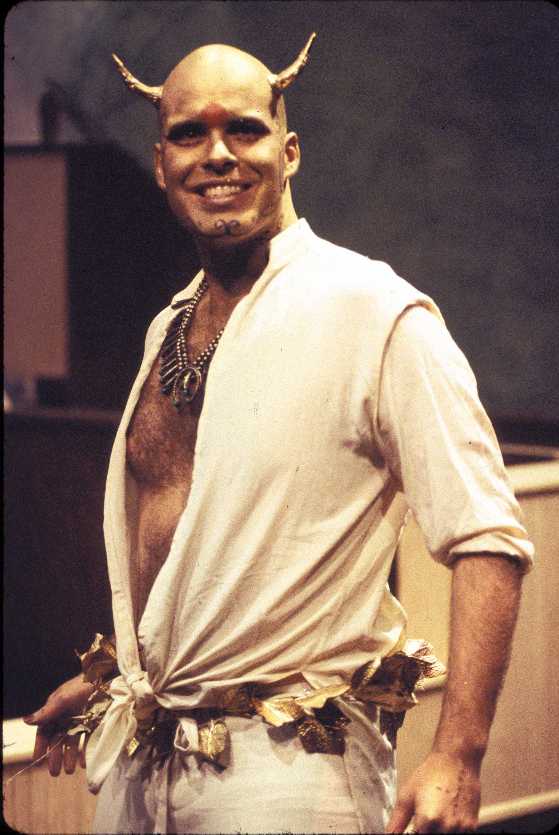| Reviews - Bacchus | |
 BACCHUS BACCHUSby Martin Denton for nytheatre.com · November 3, 2002 The Bacchae by Euripides is about the god Dionysus' violent and irrational victory over the Theban king Pentheus. It's a primitive cautionary tale about knowing your place in the cosmos; as Metropolitan Playhouse artistic director Alex Roe puts it (describing the company's current season of plays), "Who Do You Think You Are?", here asked by Dionysus of the paltry mortal who dares defy him. Roe has created a new adaptation of the classic play, and it's now on at the Metropolitan's intimate East Village space. He's called it Bacchus, and for good reason; in his version, the god isn't merely making an example of a non-believer: it's personal. Bacchus follows Euripides faithfully. Dionysus disguises himself as a young worker in Thebes in order to better incite the populace to take part in his Bacchic rituals. The local king, Pentheus, refuses to acknowledge the god's power, however; for this he is punished with a brutal death, torn apart by the ecstatic worshippers, led by his own mother, Agave, who mistakes her son for a wild lion and tears his head from his body. Roe's Bacchus is a primal and rather fatalistic interpretation at odds with other modern adaptations: though his Agave is horrified by what she's done, the predominant theme of the play is not the danger of doing the gods' bidding but the danger of not doing it: in the power struggle between humankind and the universe, the universe always wins. It's a potent and unsettling approach to the work. Roe's staging dazzles. The god Dionysus is portrayed with an almost carnal rawness by Matt Daniels, who looks unearthly with glittery gold skin and a pair of treacherous-looking horns. Roe has another actor (Annette Previti) portray the man Dionysus turns himself into, allowing for both spirit and manifestation to interact with the mortals, which is enormously effective. Roe likewise has Dionysus imbue the three members of the chorus with traits that transform them into pivotal characters in the narrative (the last one being Agave), reinforcing his theme that the gods, not the mortals, are in command. |
|